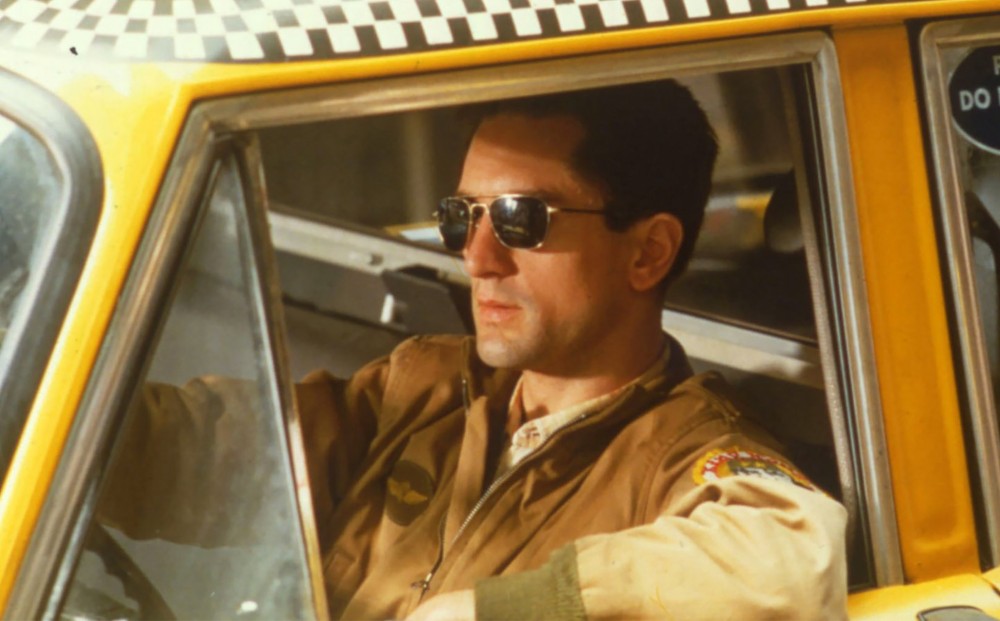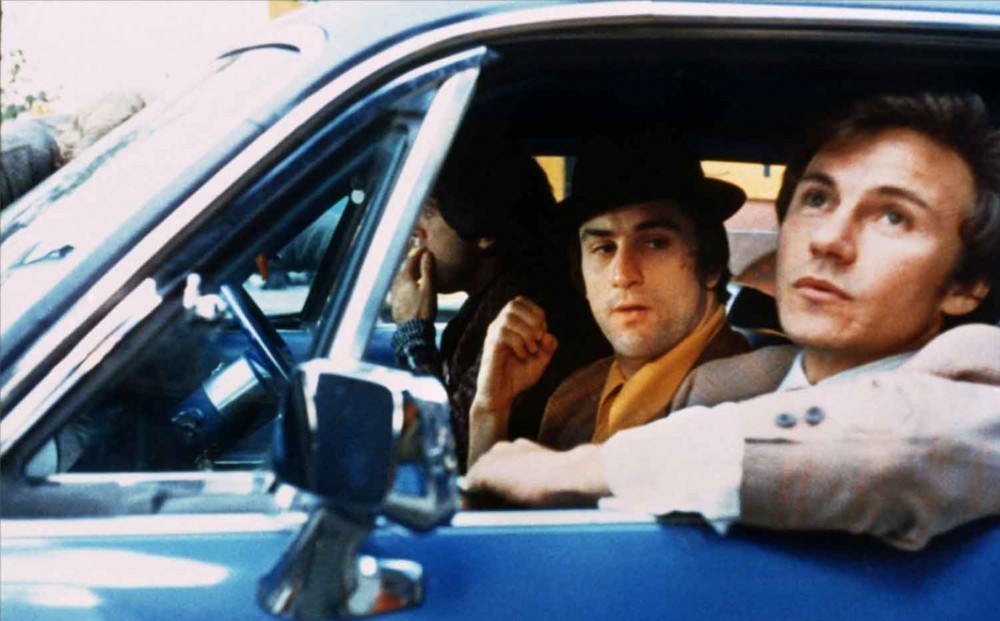TAXI DRIVER & MEAN STREETS
Saturday, September 1
TAXI DRIVER
| 12:30 5:05 9:45 |  |
(1976, Martin Scorsese) “You talkin’ to me?” Robert De Niro’s insomniac cabbie Travis Bickle, amid his nocturnal 12-hour shifts, yearns in moody voice-over for a rain that’ll “wash all the scum off the streets”, while he ferries presidential candidate Leonard Harris (then Channel 2 entertainment critic) and Scorsese’s own hopped-up cuckold; tentatively tries for a date with campaign worker Cybill Shepherd; and silently spectates as pimp Harvey Keitel yanks 12-year-old hooker Jodie Foster out of his cab; as Bernard Herrmann’s brooding score – his last – presages the blow-ups to come. Shot during a sweltering NYC summer-cum-garbage strike, Scorsese’s contribution to the Bicentennial was inspired by the diaries of Arthur Bremer (would-be assassin of presidential candidate George Wallace), Dostoyevsky’s Notes from the Underground, and screenwriter Paul Schrader’s own near-nervous breakdown. In one of his legendarily obsessive role preparations, De Niro drove his own shifts on a temporary cabbie’s license, lost over 20 pounds, and listened to tapes of Bremer’s diaries, then ad-libbed his memorable soliloquy to a mirror. Today, still one of the screen’s greatest evocations of urban alienation – and a time capsule of a long-gone world of dial phones, Kris Kristofferson LPs, Checker cabs, and 42nd Street grindhouses – all stunningly shot in lurid color by Michael Chapman, though the blood-spattered finale had to be de-saturated to get an R rating; Scorsese claims he now finds it more shocking that way. Palme d’Or at Cannes, and four Oscar nominations, including Best Picture; it lost to Rocky. DCP. Approx. 113 min.
REVIEWS
“The prophetic masterpiece of the 1970s. Brilliantly acted and rhapsodically beautiful. Taxi Driver will last forever!”
– The New York Times
“Scorsese put all the city dweller’s irrational, guilty fears into this story of a one-man rampage against the ‘scum – pimps, whores, muggers, junkies and politicians… a delirious, full-color successor to expressionism, in which the cityscape becomes the twisted projection of the protagonist’s mind.”
– Dave Kehr
“The first American film in which the modern city, noirishness, and the religious impulse sit together as naturally as cards in the three-card trick. The streets gasp with smoke or steam, and in the dank air it turns into Bernard Herrmann’s rueful saxophone – his last and maybe his greatest score… It is emotional at every turn, and it is a Bressonian attempt to ask whether any soul can save this city – or must he turn into an avenging angel?
– David Thomson
MEAN STREETS
| 2:45 7:30 |  |
(1973, Martin Scorsese) Guilt-ridden lowest-level Little Italy Mafioso Harvey Keitel tries to keep a low profile while keeping Don Cesare Danova happy, but out-of-his-friggin’-mind cousin Robert De Niro’s Johnny Boy doesn’t give a flying pasta fazool about those gambling debts. No one before had invested such a typical gang story with so gritty a street feel (despite extensive L.A. shooting, in addition to authentic locales in and around Scorsese’s “NoLita” home turf), or pushed it to its fully operatic heights, scored this time with vintage rock ‘n’ roll in place of Verdi – Keitel waking to the sound of the Ronettes, or De Niro dancing solo in the street to “Mickey’s Monkey” in a way new to American films; the two actors, then up-and-coming, give intense performances that can now be seen as prototypes of their later screen personas. 35mm. Approx. 110 min.
REVIEWS
“A true original for our period… It has its own hallucinatory look, its own unsettling rhythm and a high-charged emotional range that is dizzyingly sensual.”
– Pauline Kael


